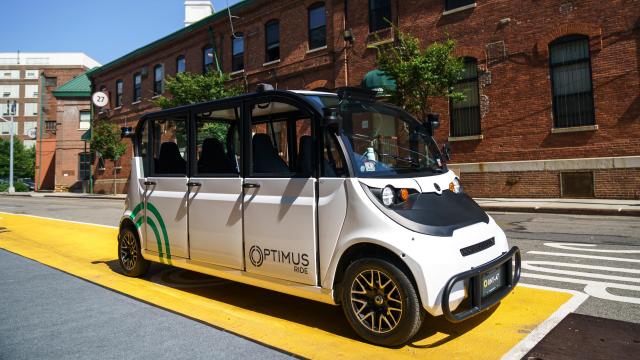You’ve likely heard of the House Republican Congress and the Congressional Black Caucus, but what about a caucus geared specifically for self-driving vehicles? A pair of bipartisan House representatives are advocating for a new group, called the Congressional Autonomous Vehicle Caucus, which they hope could potentially drive forward long absent federal autonomous vehicle standards.
According to a recent Reuters report, Republican representative Robert Latta and Democrat Debbie Dingell joined forces in an effort to launch the caucus, which they say could help educate lawmakers in autonomous vehicles and speed up attempts at lagging federal legislation. Though autonomous vehicle technology has evolved quickly in recent years, the lawmakers argue standards and laws have struggled to keep pace.
In general, caucuses are essentially groups or organisations formed by lawmakers interested in advancing a shared political goal. Caucuses can advocate for broad, multi-faceted issues like the two examples mentioned above, or for much more specific, niche interests. To put that into perspective, there exists both a Congressional Hispanic Causes on one end of the spectrum as well as the Congressional Bowhunting and Archery Caucus and Congressional Rodeo Caucus on the other. All told, Chamber Hill Strategies estimates there are around 460 caucuses active in Congress.
Latta and Dingell reportedly want to introduce federal autonomous vehicle legislation, in part to avoid creating a complicated, cumbersome patchwork of differing state laws. At the moment, some states like California, which houses a large portion of Silicon Valley companies developing autonomous vehicles, can have widely different laws and standards for deployment and testing than states on the other side of the country.
“We’re working hard to find that common ground to get something that we can pass,” Dingell told Reuters. The representative said the U.S. simply, “cannot afford to have a patchwork of laws either across 50 states.”
In addition to those federal standards, Latta expressed a desire to ensure future autonomous vehicle companies utilise technology developed by the U.S as opposed to international competitors in China.
“It’s important we keep our competitiveness in the United States,” Latta said. “It’s got to be done here in the United States.”
The lawmakers also reportedly pointed to the recent upsurge in U.S. auto deaths as a spark to reignite the legislative conversation around autonomous vehicle advancement. Last year, according to the National Highway Traffic Safety Administration (NHTSA) U.S. traffic deaths shot up 10.5%, the single highest yearly increase since 2005.
Supporters of autonomous vehicles have long argued their vast deployment at scale could significantly reduce traffic deaths by phasing out the potential for human error on roadways. Data supporting those claims are mixed. Some early studies claim a massive shift to autonomous vehicles could potentially reduce roadway fatalities by as much as 90% however more recent research conducted by The Insurance Institute for Highway Safety provides more conservative figures that estimate vehicles may actually only prevent around a third of U.S. road crashes.
Though an imagined sci-fi world featuring streets littered with self-driving cars has seemed just around the corner for the better part of a decade, there’s some good reason for cautious optimism in 2022. Flashy autonomous vehicle companies like Waymo, Cruise, and Aurora are all currently testing autonomous fleets with plans to commercialize in the coming years. Large-scale retailers like Sam’s Club, meanwhile, already have plans to deliver toilet paper via autonomous trucks. In China, Baidu recently secured a first-of-its-kind autonomous taxi licence.
On the regulatory side, the National Highway Traffic Safety Administration, recently re-worded its crash pass standard guidelines to no longer require steering wheels, brake pedals, or other manual driving controls for autonomous vehicles, a move that could pave the way for new passenger-focused vehicle designs in the coming years.
